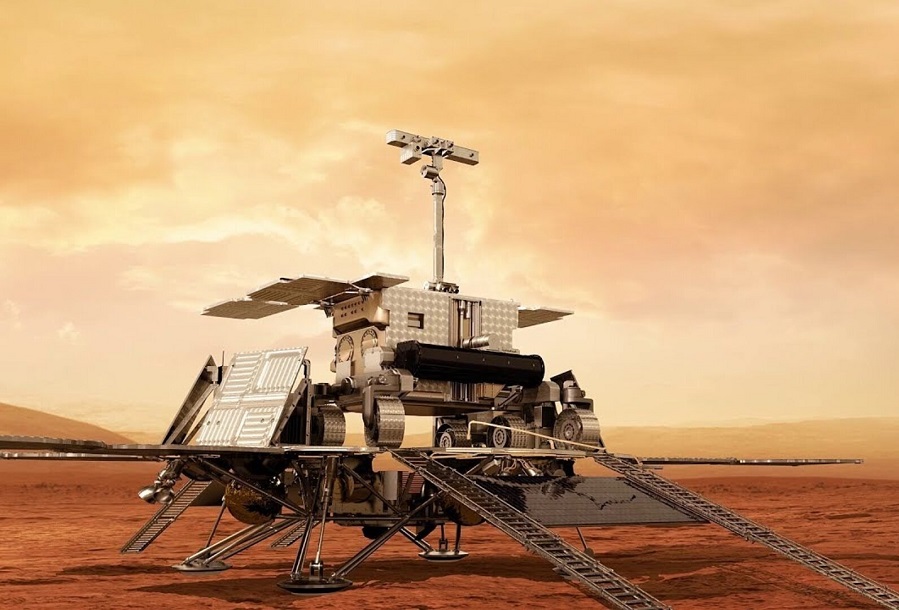The European Space Agency has decided to give up cooperation with Russia under the ExoMars program. The launch of the rover Rosalind Franklin to the Red Planet is postponed until 2024 at least.

The ESA Council has stated that it is impossible to work with Russia
On March 16-17 the Council of the European Space Agency announced in its meeting, that it could not continue cooperation with Russia under the ExoMars program. All 22 representatives of the participating countries agreed that it is simply impossible to turn a blind eye to the massacre in Ukraine. Therefore, despite all the losses for science, they are not going to work on this project together with the war criminal.
This is not just a refusal to launch from the Baikonur Cosmodrome in September this year. All the components of Russian production will be removed from the project. Specifically, they include the “Cossack” landing platform, which were to deliver the rover Rosalind Franklin to the surface of Mars.
According to the head of ESA, they are facing complex engineering tasks now. After all, it is necessary to find a replacement for everything that the Russians used to produce. It is possible that now they will have to invent a new way to land a rover on the Red Planet, and it is difficult to say how long it will take.
When ExoMars will fly into space
The future of the ExoMars project remains vague. It is well known that this year it is not flying anywhere. This means that Rosalind Franklin will definitely not be sent to Mars by 2024, because the launch window will not open until then. We also cannot be sure that replacement for Russians will be found by 2024. And this would delay the launch of the rover until 2026-2027 at least.
The question of rockets for current European missions also remains unclear. Due to the refusal of the aggressor country to send the “Soyuz” spacecraft from the Kourou spaceport, five missions were suspended. These include two launches of the Galileo navigation satellites, the Euclid orbital observatory, the EarthCARE, and the French observation satellite.
The main hopes are for the Ariane 6 rocket. But its first launch will not take place before the end of 2022, and it will be a test launch with small amateur satellites on board. This means that even urgent missions will be delayed until 2023 at least. Nevertheless Europe continues to support Ukraine.
According to Spacenews.com
